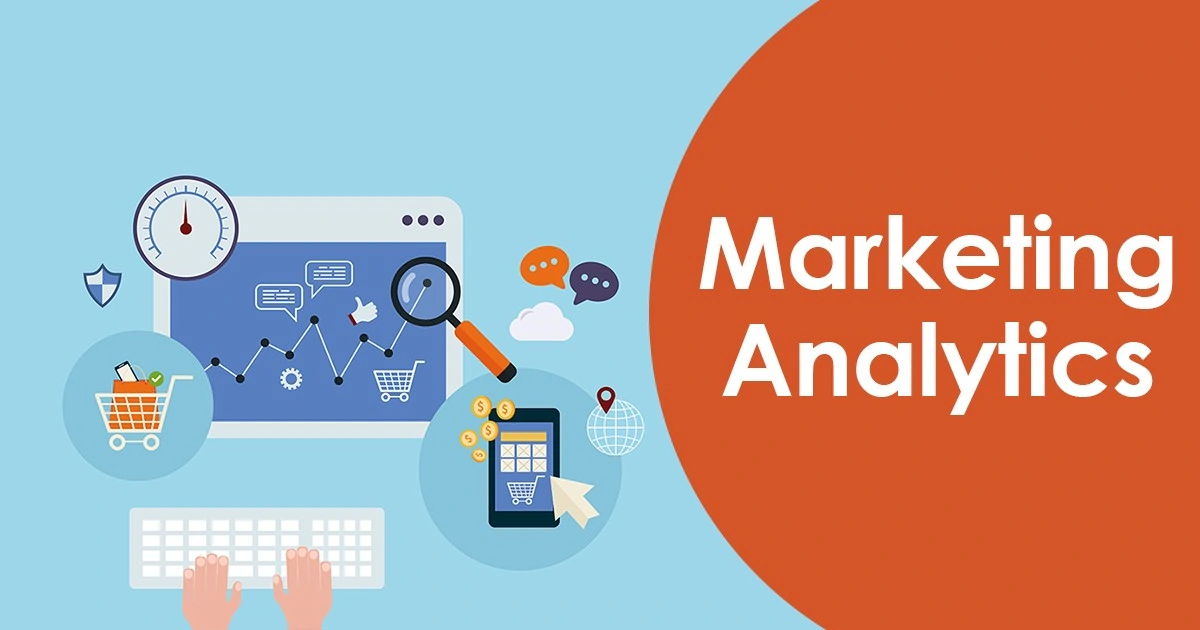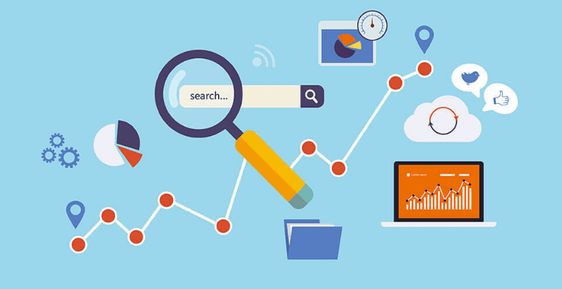What is Marketing Analytics? Tips, Tools, & Why It Matters

Do you ever wonder how businesses gain insights into customer behavior and make informed marketing decisions? Enter marketing analytics – a powerful tool that helps companies measure, manage, and analyze their marketing efforts. In today’s digital landscape, understanding the importance of marketing analytics is crucial for businesses seeking to stay ahead of the competition and maximize their impact. Let’s delve deeper into what marketing analytics entails and why it matters.
What is marketing analytics?
Marketing analytics is a field that involves the measurement and analysis of marketing efforts to evaluate their effectiveness and make data-driven decisions. It involves collecting, organizing, and interpreting data to gain insights into customer behavior, market trends, and campaign performance. By leveraging marketing analytics, businesses can optimize their marketing strategies, improve customer targeting, and drive better results.
Marketing analytics encompasses various techniques and methodologies, including data mining, predictive modeling, and statistical analysis. These techniques enable marketers to uncover patterns, trends, and correlations within their data, providing valuable insights for making informed decisions. With marketing analytics, companies can track the performance of their marketing campaigns, understand customer preferences, and identify opportunities for growth.
The Importance of Marketing Analytics
Marketing analytics plays a crucial role in today’s digital landscape. In a highly competitive market, businesses need to understand their customers’ needs and preferences to create targeted and personalized marketing campaigns. By utilizing marketing analytics, companies can gain a deeper understanding of their target audience, enabling them to tailor their messaging and offerings to meet specific customer needs.
Moreover, marketing analytics empowers businesses to measure the return on investment (ROI) of their marketing efforts. By tracking key performance indicators (KPIs) such as conversion rates, customer acquisition costs, and customer lifetime value, companies can evaluate the effectiveness of their marketing campaigns and optimize their strategies accordingly. This data-driven approach allows businesses to allocate their marketing budget more efficiently and focus on initiatives that generate the highest ROI.
The 4 Types of Marketing Analytics
Digital marketing analytics encompasses four different types of analytics that can be used to answer different questions.
Let’s jump right in and look at each type!
a) Descriptive Marketing Analytics
This type of analytics focuses on summarizing historical data to provide insights into past marketing performance. It answers questions like “What happened?” and helps businesses understand trends and patterns in consumer behavior.
b) Diagnostic Marketing Analytics
Diagnostic analytics digs deeper into the data to uncover the reasons behind certain outcomes. It helps businesses understand why certain marketing campaigns succeeded or failed by identifying underlying factors and correlations.
c) Predictive Marketing Analytics
Predictive analytics uses statistical models and machine learning algorithms to forecast future trends and outcomes. By analyzing historical data and identifying patterns, businesses can make informed predictions about consumer behavior and market dynamics.
d) Prescriptive Marketing Analytics
Prescriptive analytics goes beyond predicting future outcomes to recommend actions that businesses should take to achieve desired results. It provides actionable insights and optimization strategies based on predictive models and data analysis.
Tools and software for marketing analytics
Several tools and software are available to assist businesses in implementing marketing analytics effectively. Here are some popular options:
Google Analytics: Google Analytics is a widely used web analytics tool that provides comprehensive insights into website traffic, user behavior, and conversion rates. It offers various features such as real-time reporting, audience segmentation, and goal tracking, enabling businesses to measure and analyze the performance of their digital marketing efforts.
HubSpot: HubSpot is an all-in-one marketing automation platform that includes robust analytics capabilities. It allows businesses to track website activity, monitor campaign performance, and measure customer engagement. HubSpot’s analytics tools provide in-depth reports and dashboards, helping businesses make data-driven decisions.
Tableau: Tableau is a powerful data visualization tool that enables businesses to transform complex data into visually appealing and easy-to-understand dashboards. It integrates with various data sources and provides interactive visualizations, making it easier to analyze and communicate marketing analytics insights.

How to Implement Marketing Analytics to Improve Your Business
To implement marketing analytics effectively, follow these steps:
- Define Your Objectives: Clearly outline your marketing goals and objectives to align your analytics efforts with your business priorities.
- Choose the Right Tools: Select the appropriate analytics tools and platforms based on your budget, data requirements, and analytical capabilities.
- Collect Relevant Data: Gather data from various sources, including website analytics, social media platforms, customer surveys, and sales reports.
- Analyze and Interpret Data: Use analytics tools to analyze data, identify trends, and extract actionable insights that can inform your marketing strategies.
- Optimize Your Strategies: Continuously monitor and optimize your marketing campaigns based on insights from analytics to improve performance and achieve better results.
Benefits of using marketing analytics
Data-driven decision-making- Marketing analytics provides businesses with quantifiable insights, allowing them to make data-driven decisions. By analyzing customer behavior, market trends, and campaign performance, companies can identify areas of improvement, optimize their marketing strategies, and align their efforts with their business goals.
Improved targeting and personalization- By understanding customer preferences, businesses can tailor their marketing efforts to specific segments or individuals. Marketing analytics helps identify customer segments with the highest potential for conversion, enabling businesses to create personalized marketing messages that resonate with their target audience.
Optimized marketing spend- By tracking the performance of marketing campaigns, companies can identify which channels and initiatives drive the most significant results. This allows businesses to allocate their marketing budget more effectively, focusing on activities that generate the highest ROI and eliminating ineffective tactics.
Competitive advantage- In a rapidly evolving market, businesses that harness the power of marketing analytics gain a competitive edge. By analyzing market trends, customer behavior, and competitor strategies, companies can identify new opportunities, stay ahead of the curve, and make informed decisions to drive growth.
Conclusion
In conclusion, marketing analytics is a powerful tool that can help businesses gain a competitive edge in today’s dynamic market landscape. By leveraging data-driven insights, companies can better understand their customers, measure the effectiveness of their marketing efforts, and optimize strategies for success. Whether you’re a small business or a large corporation, investing in marketing analytics is essential for staying relevant and achieving long-term growth. So, don’t wait any longer – start harnessing the power of marketing analytics to propel your business forward today. In your journey to implementing marketing analytics for your business, what challenges do you foresee, and how do you plan to overcome them?

